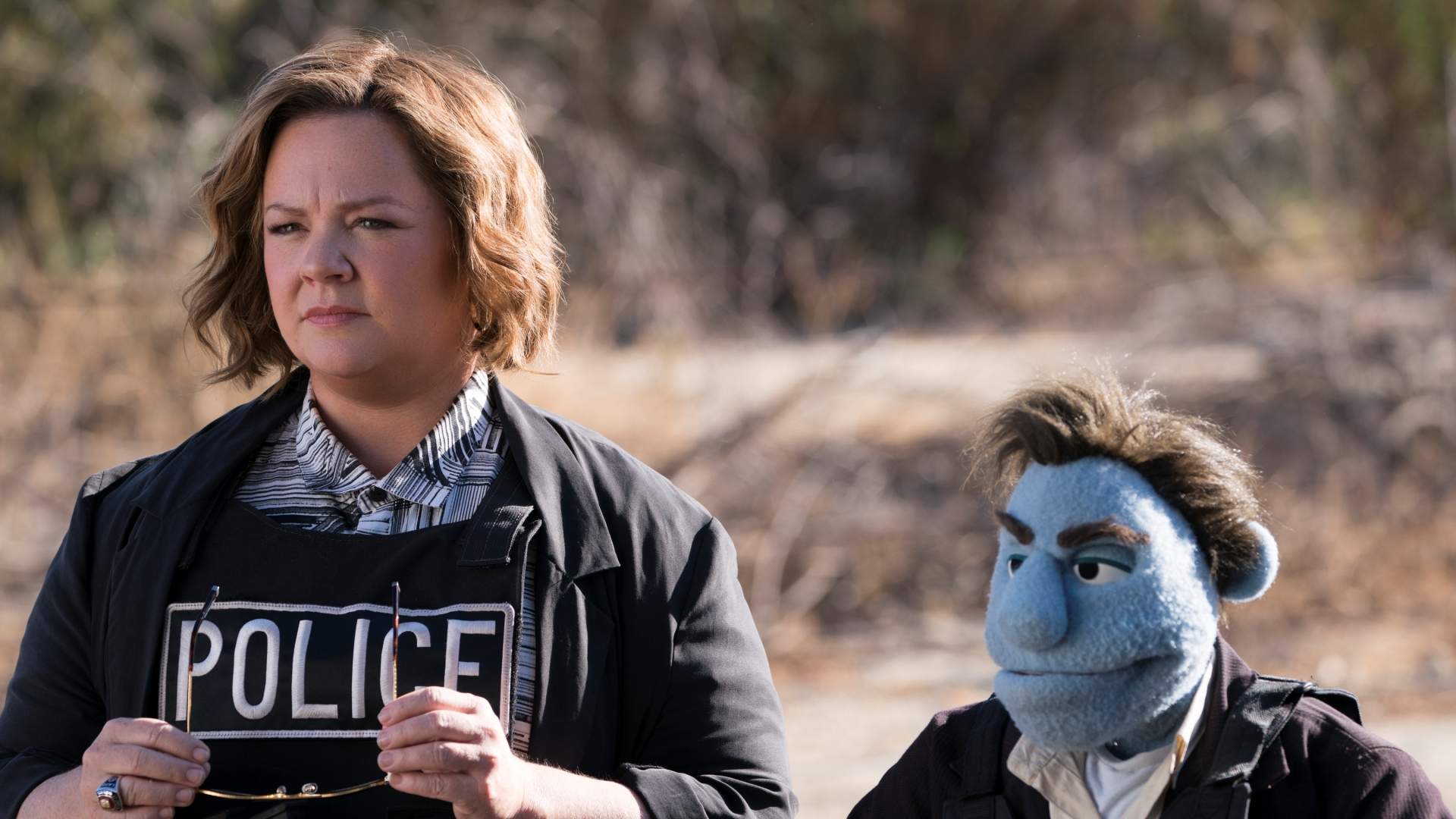The Happytime Murders
This filthy felt film is disappointingly threadbare.
Overview
Turning the cute and cuddly into the rude and crude isn't a new concept. Everything from Greg the Bunny to Meet the Feebles to Ted has been there and done that with varying degrees of success, while the irreverent Who Framed Roger Rabbit bounced through somewhat similar terrain as well. It's not a lack of originality that proves The Happytime Murders' undoing, however. Rather, it's failing to realise that an amusing (albeit well-worn) premise still needs some fluff in its felt. He might come from a puppetry pedigree, but almost every single joke in Brian Henson's new film offers a variation on the same thing: what if puppets drank, did drugs, swore and had sex?
Henson, son of The Muppets mastermind Jim Henson and director of both The Muppet Christmas Carol and Muppet Treasure Island, wasn't responsible for The Happytime Murders' script. That honour goes to Todd Berger (It's a Disaster, Cover Version), although there's little in the way that Henson executes the screenplay that extends past playing up the obvious. In fact, other than flesh-and-blood stars Melissa McCarthy, Maya Rudolph and Elizabeth Banks, the movie's best touch actually springs from the writer's pen. In a film that endeavours to dive into nostalgic territory only to tear it apart in a sea of filthy fabric, having misbehaving puppets snort sugar as their substance of choice is a clever inclusion. Something sweet becomes something toxic, mirroring the picture's own gleeful approach.
Made of blue material and sporting a gloomy attitude to match, Phil Philips (voiced by Bill Barretta) roams Los Angeles' streets as a wizened gumshoe. In short succession, two events change his life: he's hired by a seductive new client, and, working her case, he's found at the scene of a violent crime in a puppet porn shop. Before you can say "an octopus fondling cow udders" (something that happens in The Happytime Murders in graphic detail), another killing occurs, and Phil is teamed up with police detective Connie Edwards (McCarthy) to get to the bottom of it all. That the murder victims were all stars on 80s puppet TV show The Happytime Gang complicates matters, as does the fact that Phil was once the LAPD's first puppet cop (and Edwards' partner).
While the puppet body count keeps climbing, little else in The Happytime Murders evolves across its mercifully brief running-time. From start to finish, it thinks that toys ejaculating silly string and having Basic Instinct moments is the height of humour. And let's be clear — we're not saying that puppets behaving badly can't be funny, just that it wears not just thin but threadbare here, and incredibly quickly. To give them credit, the filmmakers do try to branch beyond the Team America-style debauchery, setting their story in a world where the plush are treated like second-class citizens, dubbed 'felties' by their 'meat sack' oppressors and given no respect, in an attempt to parallel real-life racial discrimination. And yet, as well-meaning as that part of the story is, it's simply used to set up more debased jokes. It's also hardly unique, especially if the aforementioned Who Framed Roger Rabbit was one of your childhood favourites.
Similarly working against the limp film is its unconvincing appearance, which never sells the idea that humans and talking pieces of cloth are actually interacting. There's an awkward, stilted feeling emanating from every scene, and it speaks volumes that the movie's most entertaining sequence involves Bridesmaids co-stars McCarthy and Rudolph and absolutely no characters fashioned from floppy material. Of course, a lot of hard work and skill went into making the furry figures come to life, as behind-the-scenes footage over the picture's closing credits shows. But, as the otherwise unseen green-suited puppeteers manoeuvre stitched-together toys, their efforts contribute to a stitched-together film that can't survive on a rote noir storyline, some human energy and too many gags about puppets gone wild.





